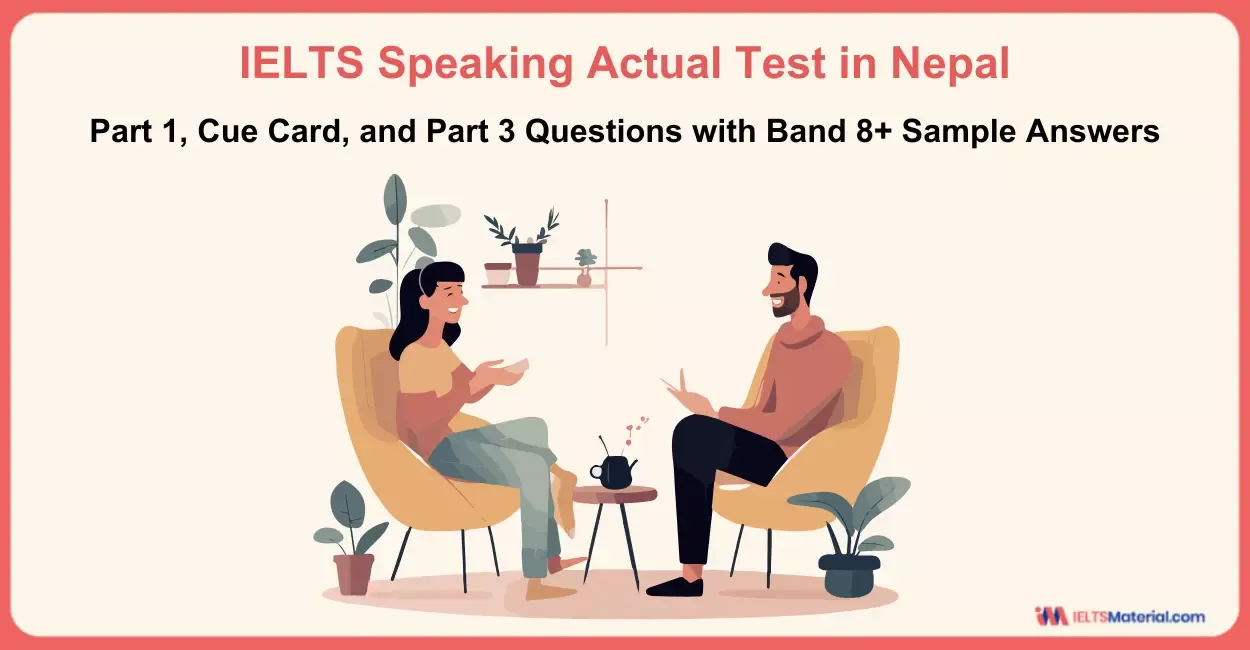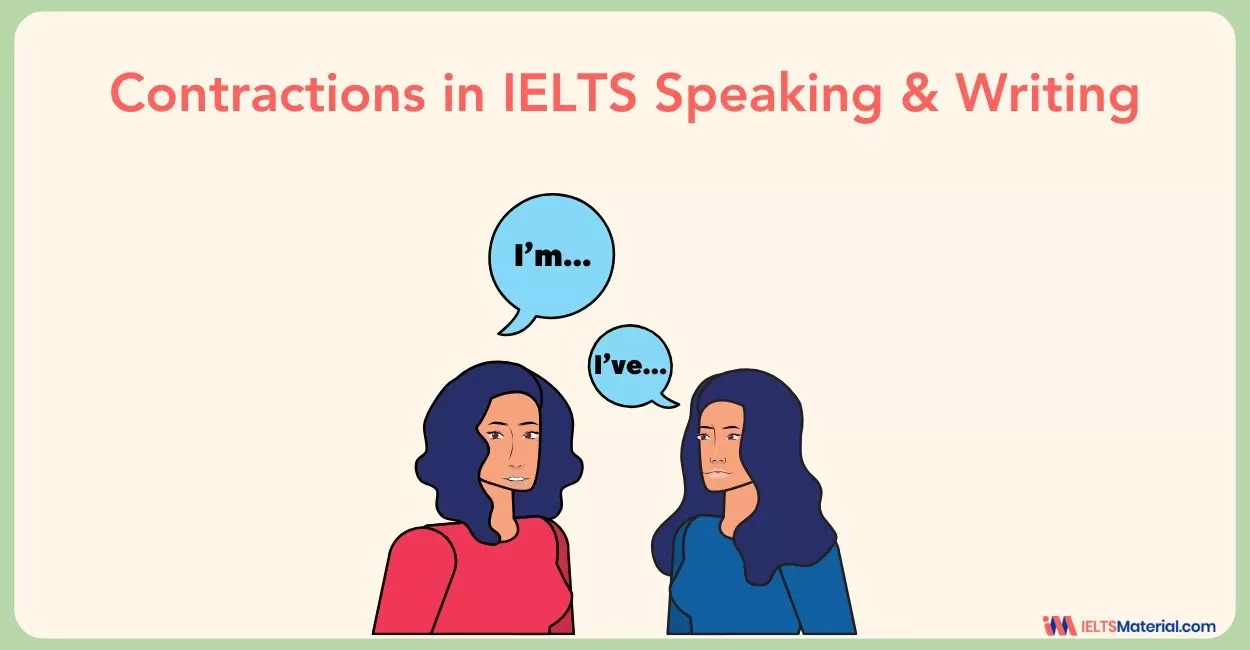10 Useful IELTS Speaking Tips to Impress the Examiner
7 min read
Updated On
-
Copy link
Aiming for a high score in IELTS Speaking? Uncover proven IELTS Speaking tips to boost your fluency, structure your answers, and speak confidently. Get ready to impress the examiner and achieve your best score!
Table of Contents

Limited-Time Offer : Access a FREE 10-Day IELTS Study Plan!
Most IELTS candidates feel that the speaking module of the IELTS exam is the most challenging among the four, even if they follow popular IELTS Speaking tips. But shouldn’t it be the easiest considering that you need to share your experiences or opinions with the examiner?
Well, the IELTS Speaking test is designed to assess your spoken English skills in a structured format. To score a band 8 or higher, you need to go beyond basic fluency and showcase advanced language skills, including lexical resource, pronunciation, grammatical range, and coherence.
In this blog, let’s explore top 10 actionable IELTS Speaking tips to impress the examiner with your improved fluency and natural speech pattern and boost your overall IELTS band score.
Aiming for a high Speaking score? Take a look at the expert tips and tricks below!
10 Useful IELTS Speaking Tips to Impress the Examiner
Here are some of the top IELTS Speaking tips to boost your speaking band score:
1 Avoid Memorized Answers
Examiners can easily detect rehearsed answers. If your response sounds too mechanical, it may affect your score. So, instead of memorizing full answers, practice structuring your response naturally around key ideas.
Example:
❌ "There are many advantages of public transport, such as reducing pollution and traffic congestion. For example, when people use buses instead of cars, it results in less carbon emissions."
✅ "I think public transport is crucial in reducing pollution. For instance, in my city, many people use the metro, which has significantly cut down traffic jams."
2 Familiarize Yourself with Common IELTS Topics
IELTS Speaking topics often cover familiar areas such as hobbies, technology, education, environment, travel, and work. While you cannot predict the exact questions, having a strong grasp of common topics allows you to respond confidently.
How to Find Common IELTS Speaking Topics?
- Research frequently asked IELTS Speaking questions and also look for recent IELTS topics in IELTS Speaking tests.
- Prepare key vocabulary and collocations for each topic.
- Practice answering questions on a wide range of subjects to build comfort.
3 Practice Speaking English Daily
Fluency improves only with regular practice. Use the IELTS Speaking practice test for daily practice and improve your overall speaking skills. Whether you’re talking to a friend or recording yourself, this practice builds confidence and helps you sound more natural.
Even if you don’t have a speaking partner, think in English, narrate daily activities, and practice common IELTS questions aloud. It will help you in understanding fluency and coherence in IELTS Speaking and improve your speaking abilities for the long run.
Struggling with IELTS Speaking preparation?
Get expert help with a FREE demo session!
4 Speak at a Natural Pace – Don’t Rush or Pause Too Much
Speaking too fast can make your speech unclear, while speaking too slowly with long pauses can make you sound hesitant. The key is to maintain a natural, steady pace while articulating your words clearly.
Record yourself and listen for pacing issues. If you speak too fast, practice pausing slightly between sentences. Also remember, fillers like ‘Well’, ‘Actually’, ‘You know’, can help buy time, but overusing them makes you sound unsure.
Example:
- Instead of: “Uhh… I think… maybe the government should, umm, do something about pollution?”
- Try: “In my opinion, stricter regulations on industries and promoting public transport would be effective in tackling pollution.”
5 Use a Mix of Complex and Simple Sentences
While fluency is important, using a mix of sentence structures can demonstrate your command of English. Complex sentences (those with dependent clauses) add depth to your speech, while simple sentences keep your answers clear and natural. Practice combining short sentences using conjunctions like ‘although’, ‘whereas’, and ‘since’ and linking words for IELTS Speaking section.
Example:
❌ "I like to travel. It is fun and exciting."
✅ "Traveling fascinates me because it allows me to immerse myself in new cultures, and every trip broadens my perspective on life."
6 Use Collocations and Idiomatic Expressions Wisely
Using natural phrases and idioms can boost your score, but don’t force them into your speech unnaturally. Collocations (common word pairings like ‘strong coffee’ or ‘fast food’) make your speech sound fluent. Learn collocations and useful idioms for IELTS Speaking to score band 8.0+, but only use them when they fit naturally.
Example:
❌ "I was over the moon happy." (Incorrect usage)
✅ "I was over the moon when I got my university acceptance letter!"
Want a high IELTS Speaking score?
Begin with our Comprehensive IELTS Speaking Band 8 Preparation Course!
7 Extend Your Answers with Supporting Details
Short, one-sentence answers won’t help you score high. Instead, expand your response by giving reasons, examples, or personal experiences. After answering, ask yourself: Why? How? Can I give an example?
Example:
Examiner: "Do you like cooking?"
❌ "Yes, I do. It's fun."
✅ "Absolutely! Cooking is both a creative outlet and a practical skill for me. Experimenting with different cuisines allows me to express myself while making delicious meals."
8 Practice Intonation and Stress to Sound Natural
Your tone should rise and fall naturally—this makes you sound more fluent and expressive. For that, you need to learn what is the correct tone in IELTS Speaking test and then, listen to native speakers and mimic their rhythm in daily conversations.
Example:
- Instead of a flat monotone: "I love hiking because it's fun and good for health."
- Try a natural rhythm: "I love hiking because it's so much fun and it's great for my health!"
9 Use the Right Tenses and Grammar Structures
Just like varied and appropriate IELTS Vocabulary, grammar accuracy is essential for band 8+ in speaking. If a question is in the past tense, answer in the past tense.
Work on your IELTS Grammar knowledge, review common tense errors and practice answering past, present, and future questions correctly.
Example:
Examiner: "Tell me about a time you helped someone."
❌ "I help my friend with his homework." (Wrong tense)
✅ "Last month, I helped my friend with his math assignment because he was struggling with algebra."
10 Stay Confident and Engage in a Conversation
Instead of treating the test as an interrogation, approach it as a friendly conversation. Maintain eye contact, smile, and show enthusiasm. Practice free IELTS practice tests with a friend or tutor while maintaining good posture and eye contact.
Bonus Tip: Listen Actively and Answer Fully
Many candidates misinterpret questions or give incomplete answers. Active listening ensures that you understand the examiner’s question and provide a well-developed response.
How to Improve?
- Focus on the exact wording of the question.
- If unclear, ask for clarification ("Could you please rephrase that?").
- Structure your answer with a clear opinion, explanation, and example.
Example:
Examiner: "How has transportation changed in your country?"
❌ "It's changed a lot." (Lack of details)
✅ "Over the past decade, transportation in my country has evolved significantly. For example, the expansion of metro systems has made commuting faster and more efficient."
Ready to boost your IELTS Speaking score?
Start practicing with an IELTS professional today in our free webinar!
Do’s and Don’ts for Each IELTS Speaking Part
Each part of the IELTS Speaking test requires a different approach. Below is a detailed breakdown of what you should do and the common mistakes to avoid in IELTS Speaking test.
Part 1: Introduction & Interview
IELTS Speaking Part 1 is about your personal life, habits, or preferences. The examiner may ask about topics such as hobbies, work, studies, family, and daily routine.
|
Do’s |
Don’ts |
|---|---|
|
Give clear, concise, and confident answers |
Don’t give one-word or very short answers |
|
Use natural expressions and collocations |
Avoid memorized or robotic responses |
|
Add a little extra detail to your answers |
Don’t over-explain simple questions |
|
Speak at a normal pace and with enthusiasm |
Don’t mumble or speak too fast |
|
Use varied sentence structures |
Don’t repeat the question in your answer |
Part 2: Cue Card (Long Turn)
In IELTS Speaking Part 2, you must speak continuously for 1-2 minutes about a given topic. The key to scoring high is structuring your answer well and keeping your speech fluent and engaging.
|
Do’s |
Don’ts |
|---|---|
|
Take notes in the 1-minute preparation time |
Don’t read directly from your notes |
|
Use past, present, and future tenses where appropriate |
Don’t go off-topic |
|
Organize your answer in a structured way (e.g., past event → feelings → impact) |
Don’t panic if you run out of things to say – extend with examples |
|
Use a variety of sentence structures and linking words |
Don’t repeat the same words or ideas |
|
Speak confidently, even if you feel nervous |
Don’t speak in a monotone voice |
Part 3: Discussion
IELTS Speaking Part 3 requires critical thinking and well-developed responses. The examiner will ask abstract or opinion-based questions related to the Part 2 topic.
|
Do’s |
Don’ts |
|---|---|
|
Provide detailed, logical opinions |
Don’t give short "yes" or "no" answers |
|
Use advanced vocabulary and transition phrases |
Don’t repeat words excessively |
|
Compare different perspectives before giving your opinion |
Don’t go off on tangents |
|
Be prepared to justify your opinions with examples |
Don’t hesitate too much or say "I don’t know" |
|
Keep a balanced and logical response |
Don’t sound too extreme in your opinions |
Overall, mastering the IELTS Speaking test is achievable with consistent practice and a focus on fluency, structure, and expressiveness. Follow these tips, practice regularly, and get ready to walk into the test room with confidence!
Useful Links:
- How to Prepare a Cue Card for IELTS Speaking
- What to Do if You Forget What to Say During IELTS Speaking Test?
- Latest IELTS Speaking Vocabulary to Boost Your Score
- How to Express Your Mixed Feelings in IELTS Writing & Speaking?
- 10 Useful Structures to Express Contrasting Ideas in IELTS Speaking & Writing Task 2
- 75+ Common English Words Used in IELTS Speaking Test
- 5 Silly Things You Say To Decrease Your IELTS Speaking Band Score
- Reasons for the IELTS examiner to interrupt you in IELTS Speaking
Frequently Asked Questions
What does the speaking test consist of?
How long will the speaking test be conducted?
What is the marking criteria for the speaking test?
How to get a good score on IELTS speaking?
How to improve my speaking abilities?
Can I memorise the answers for the recently asked questions?
How can I get 8.5 in IELTS speaking?
Explore IELTS Speaking

Start Preparing for IELTS: Get Your 10-Day Study Plan Today!
Explore other Speaking Articles



Kasturika Samanta

Prity Mallick
Recent Articles
Haniya Yashfeen

Kasturika Samanta

Kasturika Samanta





Post your Comments
1 Comment